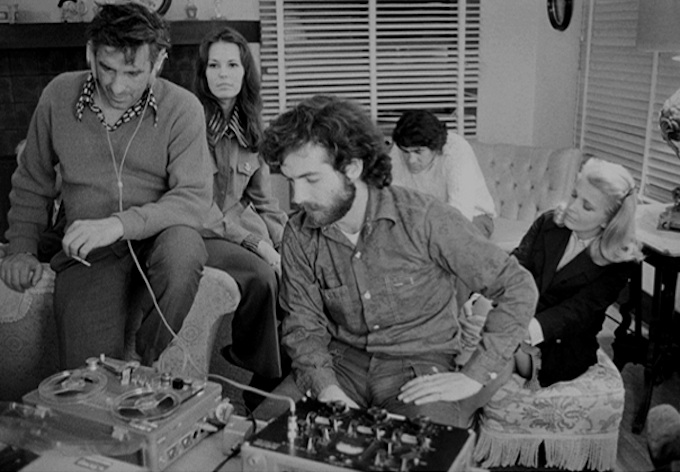John Cassavetes and his films are noted for many things, but rarely is much attention given to Cassavetes’ collaboration with composer Bo Harwood. Like many of Cassavetes’ closest collaborators (Peter Falk, Ben Gazzara, Gena Rowlands, Al Ruban, Sam Shaw, Timothy Carey, Seymour Cassel, Val Avery), Bo Harwood contributed his talents to a number of Cassavetes’ films, often supplying sound design skills in addition to his compositional talent. Now we are able to appreciate this collaboration in a new light thanks to Bo Harwood’s online release, 20 Music Tracks + “History”.

Beginning with Minnie & Moskowitz (1971) credited as musical supervisor, Harwood made his first mark on the cinema of John Cassavetes. However, Minnie & Moskowitz does not feature any of Harwood’s original pieces, but is instead a film with a soundtrack of found music. Harwood, under Cassavetes’ supervision, co-selected the tracks from numerous sources and applied them to the film. Unlike most mainstream films, Cassavetes’ use of musical cues were entirely diegetic, motivated by natural occurrences, often at the hands of the characters within the film. This technique would be the dominant style Cassavetes would employ in his subsequent films with very few exceptions.
The opening music as well as the music on the beach in A Woman Under The Influence (1975) marks such exceptions to Cassavetes’ diegetic rule. These sparse piano pieces are original Harwood compositions. But even these non-diegetic music pieces do not totally mask the diegetic sound of the scene. This not only keeps the audience grounded in the reality of the film, but indicates an interest in marrying both non-diegetic and diegetic sounds together as one (which is further supported by Harwood’s work as the sound recorder for the film). This same marrying of sounds reoccurs in The Killing Of A Chinese Bookie (1976) in which Harwood will abruptly bring excerpts of his particular brand of lo-fi music (such as Rainy Days Of Frost & Magic) in and out of the diegetic soundtrack without the use of fades, thus punctuating Cosmo Vitelli’s tension early in the film when he paces outside of his club The Crazy Horse.
The Killing Of A Chinese Bookie is also significant for the songs in the film, which Harwood wrote with lyrical contributions by Cassavetes. This model of songwriting would repeat in Opening Night (1978) and Love Streams (1975). Love Streams would be the last film Cassavetes and Harwood would do together and would also mark their most complete and mature collaboration on the operetta sequence near the end of the film. This fantasy dream sequence features the actors singing their own parts while Harwood and other musicians accompany them in a string quartet. In both cinematic and musical terms this sequence is singular in all of Cassavetes’ filmography. The scene now, most appropriately, stands as a testament to Harwood and Cassavetes’ decade long collaboration.
